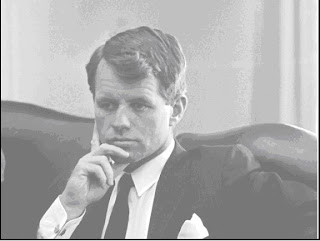Why You Should Care About Robert Kennedy
I just returned from our nation’s capital to attend the To Seek a Newer World: The Life and Legacy of Robert F. Kennedy, a jointly coordinated program between Vanderbilt University, The First Amendment Center in Washington, and the Robert F. Kennedy Memorial. The program originated through conversations about RFK’s 1968 presidential bid between Dr. Mark Dalhouse (Director of Vanderbilt’s Office of Active Citizenship and Service) and John Seigenthaler (Former Editor, Publisher and CEO of The Tennessean, and otherwise Vanderbilt legend). This program, set in the stunning backdrop of the Newseum on Pennsylvania Ave, brought together key staffers and advisers within Robert Kennedy’s 1968 campaign, civil rights leaders, key political journalists of the era as well as current historians and political figures to discuss one simple topic: the relevancy of Robert Kennedy’s life and short stint in public office on our lives today as Americans.
We invited incoming students and prospective students from the area (ergo, why I attended), in addition to the 30-some current Vanderbilt students who are a part of Vanderbilt’s Maymester course on U.S. history taught in the D.C. area. It was as genuine a learning experience as it gets, no filtering, no spin. It was history, live and direct from those who lived it. It is experiences like this that attracted me to and have kept me around higher education, and why I love being at Vanderbilt especially. You can watch the program in its entirety online on CSPAN.
Cynics in our cultural mist will claim that the current generation of college students, and those immediately entering their ranks, are only concerned with the utility of a college degree to enhance their earning potential. Do not believe them. In a recent survey by the UCLA Higher Education Research Institute it was noted that the percentage of entering college freshmen indicating that helping others was a driving personal value was at a 40-year high. In addition, that same survey found that more students than ever (more than 35%) indicated that being a community leader after graduating college was “very important” or “essential” to them. This is greatly promising.
A Post Script
I get asked a lot about the political life at Vanderbilt. Is it a protest around every corner type place, or more apathetic, passively watching the political process pass like a garish parade? The answer to most questions like this is clearly subjective, and my attempt to objectively answer it puts me in the muddy but candid middle. Vanderbilt is a place where debate is active, no question about it. It is a place where people care deeply about issues and can find an audience to air their opinions. This mostly happens in classrooms and at Vanderbilt’s modern version of the Roman Forum known in Vandyspeak as “The Wall.” A central meeting place for students, faculty and staff alike to join organizations, sign petitions, and raise money and awareness for a variety of causes. My sense from being around many college campuses is that while Vandy students have certainly organized around a variety of causes in the past, it does not take the protest-a-minute persona that some campuses (in)famously adopt. Issues live here though, and do so in a spectrum. It’s a place where democrats, progressives, independents, libertarians and conservatives will find a place, and a voice (we have 5 different student newspapers, including a liberal and conservative publication).

